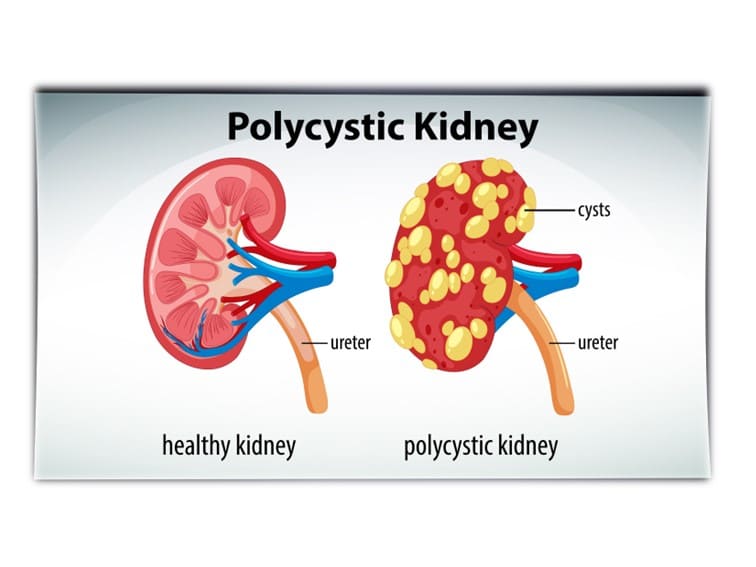Polycystic kidney disease: Cysts are round sacs that contain fluid – Polycystic means many cysts. Polycystic kidney disease is a genetic disorder. In this disorder, many cysts develop within the kidneys. The genetic defect leads to cysts formation.
The size and the number of cysts in each kidney may vary and the cysts alter the size and shape of the kidneys – making them larger.
A better understanding of this condition is very important as polycystic kidney disease progresses silently causing severe damage to the kidneys.
In many cases, PKD doesn’t cause any signs or symptoms. For this reason, there is a strong possibility that a person can have PKD for years but remain unaware of it.
As it is a genetic disorder –it runs in families. If any family member is known to have polycystic kidneys, it is recommended that other members undergo screening tests with ultrasound, urine analysis, and blood tests.
What are the Symptoms of PKD
The majority of the time most patients do not have any symptoms. Some of them present with back pain. A kidney stone, urinary tract infection, or kidney infection can also cause back pain. The other symptoms may include:
- Blood in the urine
- High blood pressure
- Recurrent Urine infections
- Kidney infections
- Abdominal swelling or fullness
- Headaches
- Kidney stones
- Kidney failure
Complications Associated with PKD
A major complication of PKD is high blood pressure. Uncontrolled hypertension can lead to further damage to the kidneys, heart disease, and stroke.
Most commonly progressive loss of kidney function if left untreated. A majority of people with this condition can develop kidney failure over a period of time.
Formation of cysts in the liver – PKD may increase the likelihood of developing cysts in the liver.
Heart valve disease: around 25% of people with PKD may develop heart valve abnormalities such as mitral valve prolapse.
Some people with Polycystic kidneys also have cysts-like structures in the blood vessels of the brain which are called aneurysms and can cause bleeding in the brain.
When to See a Nephrologist?
An appointment with a nephrologist is very important if any of your parents or sibling are recognized to have this condition. Your nephrologist will recommend screening tests for this condition which include blood tests, urine tests, and ultrasound
People known to have cysts should consult their nephrologist regularly for a comprehensive evaluation, screening, and counseling to try and prevent the progression of their kidney disease.
Polycystic kidney disease can worsen over time leading to end-stage kidney disease. At this stage, dialysis or transplant becomes a necessity to prolong life expectancy.

Leave a Reply